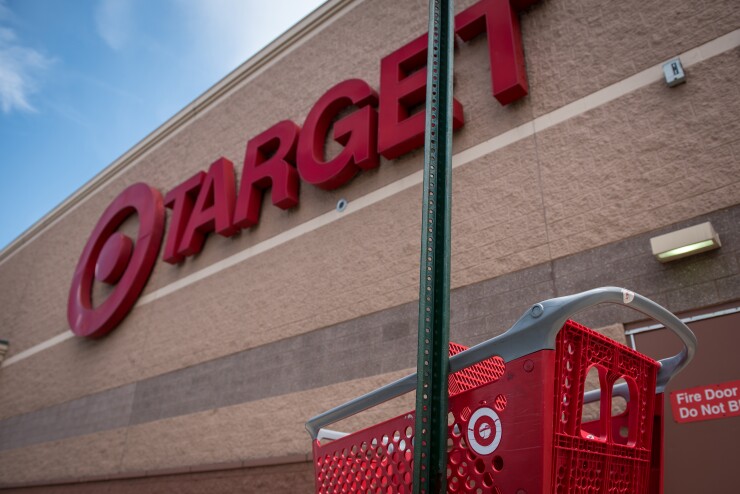Want unlimited access to top ideas and insights?
Welcome to the PaymentsSource Morning Briefing, delivered daily. The information you need to start your day, including top headlines from PaymentsSource and around the Web:
Target 'GPS':

PSD2 may push Swiss exchange sale: The Swiss stock exchange operator SIX Group has hired JPMorgan to potentially manage a sale of its payments group, which could be worth up to $2.1 billion, according to
Bluefin goes to college: Atlanta-based encryption company Bluefin is collaborating with NeuLion to add Bluefin's point-to-point protection for college ticketing. NeuLion will embed the encryption directly into its platform, reducing PCI scope and bolstering security without changing the customer experience for sporting events and other programs that require ticket purchases. The encryption supports credit and debit card transactions, and prevents cardholder data from being available in the device or merchant's system. NeuLion's clients include Duke, LSU, Florida State and the University of Oklahoma. "NeuLion’s college ticketing and donor management partners are under increasing pressure to limit the liability of credit card processing. By partnering with Bluefin, NeuLion is able to offer our partners peace of mind in knowing that the card information is secured as soon as the transaction is initiated," said Tim Vargas, senior vice president of NeuLion College Business Development, in a release.
Point to pay: Some payment companies are embracing
From the Web
The Washington Times | Wed Sep 20, 2017 - Equifax is being asked to explain how it intends to safeguard the sensitive information of more than a million U.S. servicemembers affected by its recently disclosed data breach. Sen. Joe Donnelly, Indiana Democrat, and Sen. Dean Heller, Nevada Republican, wrote the nation’s largest credit reporting agency Tuesday. “We are particularly concerned about the roughly 1.3 million active-duty U.S. military personnel, especially the nearly 200,000 currently stationed overseas, who may lack the access and resources required to place a credit freeze on their files or take other necessary measures to adequately protect their personal information. This could leave members of our military especially vulnerable to identity theft and financial fraud in the days, months and years ahead,” the lawmakers said in a letter addressed to Equifax CEO Richard Smith.
CNBC | Wed Sep 20, 2017 - Almost 2 billion data records around the world were lost or stolen by cyberattacks in the first half of 2017, according to the latest findings by digital security provider Gemalto, and the number of breaches reported by companies looks set to rise. There were 918 data breaches which compromised 1.9 billion data records in the first six months of 2017, according to Gemalto's latest breach level index published Wednesday. The number of lost, stolen or compromised records increased by 164 percent compared to the same period in 2016. Of these 918 breaches, 500 breaches had an unknown number of compromised records, while 22 of the largest data breaches involved more than one million compromised records. Part of the increase is likely that companies feel more pressure to be transparent and reveal data breaches. New regulations such as the U.K. data protection bill, the European Union's General Data Protection Regulation and Australia's Privacy Amendment (Notifiable Data Breaches) Act are set to come into force in the coming months and years, and will push firms to disclose hacks and security breaches.
Washington Post | Wed Sep 20, 2017 - A federal court has rejected a lawsuit seeking compensation for some 22 million federal employees, retirees and others whose personal information was stolen from two government databases. The U.S. District Court for the District of Columbia said Tuesday that it has no jurisdiction over cases brought by two federal unions following the hacking of Office of Personnel Management databases, revealed in mid-2015 but occurring months before. Those databases included names, addresses and Social Security numbers, in many cases personal financial and legal information, and in some cases fingerprints. In response, the government has been providing free services such as credit and identity monitoring and identity theft insurance. Separate suits by the American Federation of Government Employees and the National Treasury Employees Union sought financial damage awards for the victims in addition.
More from PaymentsSource
In the wake of the Equifax breach, fraudsters now have 143 million new tools at their fingertips to explore new avenues of payments fraud, particularly when it comes to new account enrollments, account takeover (ATO), and synthetic identity-based fraud.
Everyone's felt the chill of the massive Equifax breach, giving Mastercard a sense of urgency when detailing future security measures for its card network.
The payments industry may have been under the impression that the steady drip of data breaches over the past few years has left U.S. consumers in a state of battle fatigue, where the cycle of hacking, recriminations and credential reissuance has become almost circadian. Indeed, it may have been the expectation of a cowed and apathetic public that partly led to Equifax’s inept disaster response after its data breach was finally made public.
For companies like Uber and Lyft, which need the payment process to be as seamless and invisible as possible, Apple Pay might seem like an answer to their prayers. In reality, Apple Pay and rival mobile wallets fall very short of delivering what the two ride-sharing heavyweights need.





